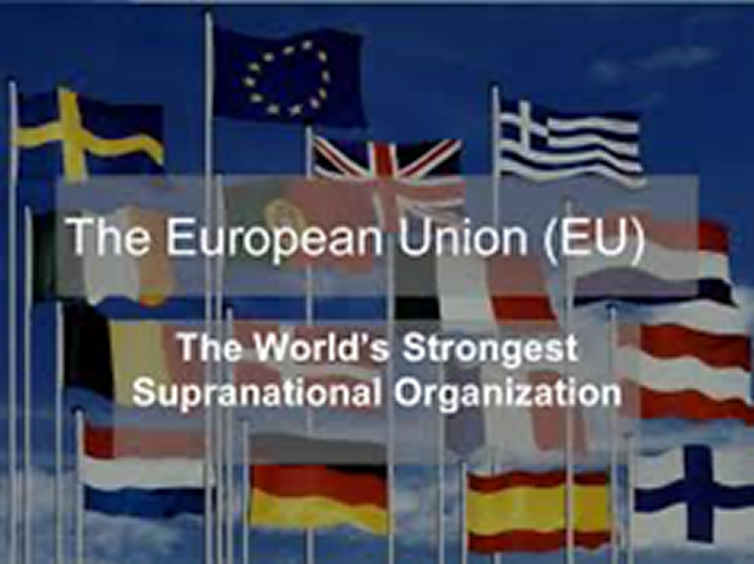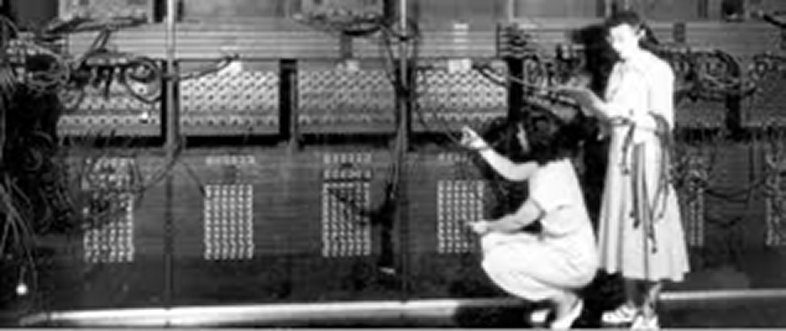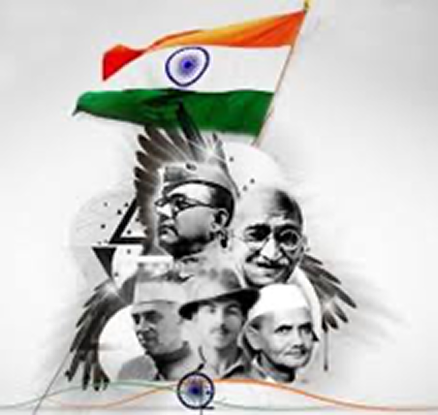
As the great philosopher George Santayana famously said, “Those who cannot remember the past are condemned to repeat it.” Our past isn't just a dusty photo album; it's a living story that explains the world around us. Just like you would not skip chapters in a gripping novel, ignoring history leaves you with an incomplete picture. By diving into the past, we are not just reminiscing – we are actively learning from the victories and losses that shaped our present. It is like getting to analyze the blueprints of our society, giving us the power to learn from mistakes, appreciate what we have now, and build a more just and equitable future.
Let's be honest, for many of us in high school, history felt like a redundant collection of dates, battles, and facts. It was easy to treat it like an afterthought, something to be crammed for tests and then promptly forgotten. But history isn't some relic of the past, gathering cobwebs in a dusty museum. It is very much alive. It is the story of how we got here – the triumphs, the tragedies, the decisions made centuries ago that still ripple through our world today. From the political climate to the social issues we grapple with, the echoes of history are everywhere.
So, buckle up, for it's time to dive into the dynamic, surprising world of history. You might be surprised just how relevant (and even intriguing) it can be.
Take the example of the Irish immigrants, who migrated to the US. In the mid-19th century, a massive wave of Irish immigration reshaped American society. Understanding their history goes beyond simply enjoying Irish soda bread and celebrating St. Patrick's Day (a religious holiday for the Irish). By delving into primary sources (first-hand accounts) like ship manifests, letters written home, and newspaper articles, historians can reconstruct the harsh realities faced by Irish immigrants. These accounts reveal stories of discrimination, prejudice, and dangerous working conditions. Many Irish immigrants found themselves concentrated in low-paying, physically demanding jobs like canal construction and railroad building. Studying labour-organising documents and protest songs composed by Irish workers sheds light on their struggles for better wages, safer working conditions, and a voice in the workplace.
Understanding the Irish experience is relevant to contemporary discussions about immigration and labour rights. The challenges they faced, and the ways they organised to fight for their rights, resonate with ongoing debates about migrant labour, worker exploitation, and the importance of fair treatment for all members of society.

The relationships between nations are shaped by historical events and alliances, much like the complex dynamics within our own families. Studying these events help us understand current political tensions and, more importantly, how to navigate them effectively. By delving into the past, we can identify patterns of cooperation, conflict, and diplomacy that continue to influence international relations today.
Have you ever wondered why European countries feel like a collective unit? Most of them have the same currency (Euro), and a common political organisation, which is the EU (European Union). There is a major historical reason why it came into being. To understand this, we need to go back through the annals of history, all the way to postwar Europe. After World War II, we witnessed a paradigm shift in global politics, in the form of the Cold War and the dawn of the nuclear age. Devastated by the war's catastrophic toll, European nations sought to prevent future conflicts through cooperation. This led to the creation of supranational institutions like the European Coal and Steel Community (later evolving into the European Union), which fostered economic interdependence and diplomatic collaboration. Understanding this historical context is crucial for comprehending the complex political landscape of the European Union today, where member states navigate issues of national sovereignty, economic integration, and a unified foreign policy

Have you ever flipped through the news and felt lost amidst the maze of conflict between nations? You're not alone. Understanding the historical context behind these events is crucial for piecing together the puzzle. Many present-day conflicts have roots that burrow deep into the soil of history. These roots, that are often tangled and complex, can fuel ongoing tensions, mistrust, and violence. By studying these historical tensions, we can identify the underlying causes of conflict, understand the grievances held by different parties, and work towards more peaceful resolutions.
The ongoing Israeli-Palestinian conflict exemplifies the enduring impact of historical events. Understanding the roots of this conflict requires examining events like the fall of the Ottoman Empire, the rise of Zionism and Arab nationalism, and the mass displacement of Palestinians during the 1948 Arab-Israeli War. Studying these events shed light on the competing claims to land, the deep-seated sense of injustice felt by both Palestinians and Israelis, and the historical narratives that continue to shape their perspectives. Focusing solely on recent news headlines often provides an incomplete picture of complex conflicts. Historical research allows us to delve deeper, uncovering the historical grievances, unmet needs, and competing narratives that fuel tensions. Examining the historical roots of conflict doesn't necessitate assigning blame. Rather, it encourages empathy and understanding for the experiences of different groups involved. Historical reconciliation efforts, which involve acknowledging past wrongs and seeking forgiveness, can be crucial steps in fostering trust and building a more peaceful future.

Throughout history, empires have risen to prominence, only to crumble under the weight of internal discord and external pressures. Studying the fall of empires like Rome or the Ottomans reveals recurring patterns of political corruption, economic mismanagement, and social unrest. Recognizing these patterns allows us to identify potential pitfalls faced by modern nations. By learning from the mistakes of the past, we can work towards building more sustainable and equitable societies, fostering good governance, and addressing issues like income inequality before they reach a tipping point.
The study of history isn't limited to grand empires. Examining social movements, revolutions, and periods of economic upheaval can also offer valuable insights. For instance, analyzing the factors that led to the French Revolution or the American Civil Rights Movement helps us understand the dynamics of social change and the power of collective action. This knowledge can be applied to contemporary issues like social justice movements and calls for political reform. By recognizing recurring patterns in human behavior and societal trends, history empowers us to become proactive rather than reactive in tackling future challenges. It allows us to anticipate potential problems, develop preventative measures, and build a brighter future for ourselves and generations to come.
Textbooks often paint a limited picture, focusing on grand events and prominent figures. But beneath the surface lies a wealth of stories waiting to be discovered. Take the ENIAC computer for example. It's hard to imagine a time without computers, but it did exist. As did six women who changed the entire tech landscape. Meet the six brilliant women – Kathleen McNulty, Jean Jennings Bartik, Frances Elizabeth Hollingsworth, Marlyn Wescoff Meltzer, Ruth Lichterman Teitelbaum, and Adele Goldstine – who programmed the ENIAC, who used their expertise to calculate artillery trajectories during WWII. But it wasn't just war efforts that benefited from their brains- they went on to help create the first commercially-produced computer, changing the way we related to technology forever. They painstakingly learned the intricacies of this complex technology, developing the first programming techniques that paved the way for the digital age. Unfortunately, their contributions were largely overlooked for decades.
This is where history steps in as a champion for the forgotten. By studying historical records, oral histories, and personal accounts, we can bring these hidden figures to light. The story of the ENIAC programmers highlights the importance of inclusivity in science and technology fields. Their achievements serve as an inspiration for future generations, demonstrating that groundbreaking contributions can come from anyone, regardless of background or gender.

We often take our rights and freedoms for granted – the right to vote, freedom of speech, and religious liberty. By studying the struggles faced by previous generations who fought for these rights we enjoy, we gain a deeper appreciation for their value and the importance of safeguarding them.The struggle for independence and the movements for social justice serve as powerful examples of how studying history empowers informed citizenship. By learning about the sacrifices and contributions of leaders like Mahatma Gandhi, Dr. B.R. Ambedkar, and others, we gain a deeper appreciation for the values of freedom, equality, and justice.
The Indian freedom movement, led by figures such as Gandhi, Nehru, and Patel, was a testament to the power of nonviolent resistance and civil disobedience. Their efforts not only led to India's independence but also inspired similar movements around the world.
Similarly, the social reform movements led by Dr. Ambedkar and others sought to address the deep-rooted inequalities and injustices in Indian society. Their struggles for the rights of marginalized communities, including Dalits, women, and minorities, paved the way for a more inclusive and equitable society.
Studying these movements not only inform us about our past but also inspire us to actively participate in discussions about social justice and advocate for equal rights. It reminds us of the importance of standing up against oppression and working towards a society where every individual is treated with dignity and respect.

In conclusion, history is not just a series of events that happened in the past; it is a reflection of who we are today and a roadmap for where we are heading in the future. As we delve into the intricacies of our past, we uncover stories of resilience, innovation, and perseverance that continue to inspire us.
By studying history, we gain a deeper understanding of the complexities of human nature, the impact of our actions, and the importance of empathy and compassion. History teaches us that progress is not linear; it is often marked by setbacks and challenges that test our resolve.
So let us embrace history as a guidepost for the future, a source of wisdom and inspiration, and a testament to the enduring spirit of humanity. As we navigate the complexities of our world, let us remember the words of philosopher George Santayana once more: "Those who cannot remember the past are condemned to repeat it." Let us learn from the past so that we may create a brighter future for ourselves and generations to come.